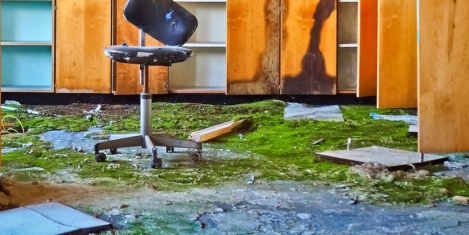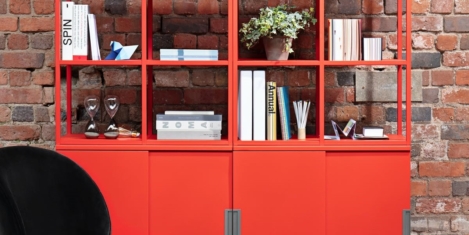To provide the best experiences, we use technologies like cookies to store and/or access device information. Consenting to these technologies will allow us to process data such as browsing behaviour or unique IDs on this site. Not consenting or withdrawing consent, may adversely affect certain features and functions.
The technical storage or access is strictly necessary for the legitimate purpose of enabling the use of a specific service explicitly requested by the subscriber or user, or for the sole purpose of carrying out the transmission of a communication over an electronic communications network.
The technical storage or access is necessary for the legitimate purpose of storing preferences that are not requested by the subscriber or user.
The technical storage or access that is used exclusively for statistical purposes.
The technical storage or access that is used exclusively for anonymous statistical purposes. Without a subpoena, voluntary compliance on the part of your Internet Service Provider, or additional records from a third party, information stored or retrieved for this purpose alone cannot usually be used to identify you.
The technical storage or access is required to create user profiles to send advertising, or to track the user on a website or across several websites for similar marketing purposes.
 Over the past ten years, reuse of furniture and furnishings has been extremely limited. Most redundant assets have been discarded to landfill. It’s a brutal fact that it is the easy and less expensive option. Many products sent for recycling often end up in landfill or incineration and so still contributing to carbon emissions. As offices plan for new ways of working, will the surplus products go the same route? (more…)
Over the past ten years, reuse of furniture and furnishings has been extremely limited. Most redundant assets have been discarded to landfill. It’s a brutal fact that it is the easy and less expensive option. Many products sent for recycling often end up in landfill or incineration and so still contributing to carbon emissions. As offices plan for new ways of working, will the surplus products go the same route? (more…)






 Almost every organisation now knows it must become more resilient as the economy emerges from the pandemic. As well as coping with crises and global events, organisations must excel in the face of the many less high-profile disruptions that hit an organisation – from supply chain bottlenecks to shifts in demand and sudden skills shortages. HR departments have a major role to play in this but to do so successfully requires a change of mindset, taking a step back from traditional administrative functions and reviewing the entire business as if they were an outsider.
Almost every organisation now knows it must become more resilient as the economy emerges from the pandemic. As well as coping with crises and global events, organisations must excel in the face of the many less high-profile disruptions that hit an organisation – from supply chain bottlenecks to shifts in demand and sudden skills shortages. HR departments have a major role to play in this but to do so successfully requires a change of mindset, taking a step back from traditional administrative functions and reviewing the entire business as if they were an outsider. 
 Employers nationwide are taking steps to improve employee wellbeing, reduce stress and improve mental health. For many, they are well-meaning, for example, banning work emails during certain hours of the day, encouraging employees to ‘switch off’. However, the risk with blanket policies like these is that they don’t work for everyone. A
Employers nationwide are taking steps to improve employee wellbeing, reduce stress and improve mental health. For many, they are well-meaning, for example, banning work emails during certain hours of the day, encouraging employees to ‘switch off’. However, the risk with blanket policies like these is that they don’t work for everyone. A 


 When considering a hybrid working method for your organisation, it’s far too easy to try think of what will work for all employees as a whole, rather than breaking this down and thinking about the different needs from certain groups of people. One example of this is age and experience. Employees from different age groups and at different levels of experience within in an organisation may have very different needs when it comes to hybrid working. Those who have been with the business, or in a similar work environment, for some time may be perfectly comfortable to work from home the majority of the week, with little help or supervision. However, this probably isn’t going to work as well for younger employees with less experience.
When considering a hybrid working method for your organisation, it’s far too easy to try think of what will work for all employees as a whole, rather than breaking this down and thinking about the different needs from certain groups of people. One example of this is age and experience. Employees from different age groups and at different levels of experience within in an organisation may have very different needs when it comes to hybrid working. Those who have been with the business, or in a similar work environment, for some time may be perfectly comfortable to work from home the majority of the week, with little help or supervision. However, this probably isn’t going to work as well for younger employees with less experience. 
 Over the past year we’ve all become accustomed to working from home and now, the number of businesses setting permanent remote working strategies is growing. Consequently, this affects HR departments and their ways of working. The office is losing its status as the daily workplace and communication between colleagues has shifted to virtual channels. In order to manage remote workers appropriately and effectively, a manager who specialises in remote work could become more and more relevant in HR departments across the world.
Over the past year we’ve all become accustomed to working from home and now, the number of businesses setting permanent remote working strategies is growing. Consequently, this affects HR departments and their ways of working. The office is losing its status as the daily workplace and communication between colleagues has shifted to virtual channels. In order to manage remote workers appropriately and effectively, a manager who specialises in remote work could become more and more relevant in HR departments across the world. 
 Every day, after a leisurely breakfast in bed and the opening of his post, Roald Dahl would wander down his garden to the grubby little hut crammed with personal paraphernalia he had created there. There he would sharpen the six yellow pencils that were always by his side while he worked, settle into an armchair, put his feet up on an old suitcase filled with logs, place an American yellow legal pad of paper onto a makeshift board on his lap and work for two hours.
Every day, after a leisurely breakfast in bed and the opening of his post, Roald Dahl would wander down his garden to the grubby little hut crammed with personal paraphernalia he had created there. There he would sharpen the six yellow pencils that were always by his side while he worked, settle into an armchair, put his feet up on an old suitcase filled with logs, place an American yellow legal pad of paper onto a makeshift board on his lap and work for two hours. 
 Half of workers in the UK (50 percent) say their employers have provided support for their mental health during the COVID-19 pandemic, while two-thirds of employees globally reported the same (65 percent). This may illustrate a growing awareness and concern from businesses about the potential psychological impact on staff, according to a new study
Half of workers in the UK (50 percent) say their employers have provided support for their mental health during the COVID-19 pandemic, while two-thirds of employees globally reported the same (65 percent). This may illustrate a growing awareness and concern from businesses about the potential psychological impact on staff, according to a new study 
 HR leaders, heads of real estate and IT decision-makers have not always spent huge amounts of time working together – their roles and responsibilities have often been siloed. But in the new world of work, that’s all changing. These three groups of senior leaders are being asked to collaborate on one of the biggest challenges corporate occupiers, as they try to figure out when and how to return to office-based working and shape the future of work. Failure to collaborate will increase the probability of workplaces having low occupancy rates, low employee engagement and decreased productivity.
HR leaders, heads of real estate and IT decision-makers have not always spent huge amounts of time working together – their roles and responsibilities have often been siloed. But in the new world of work, that’s all changing. These three groups of senior leaders are being asked to collaborate on one of the biggest challenges corporate occupiers, as they try to figure out when and how to return to office-based working and shape the future of work. Failure to collaborate will increase the probability of workplaces having low occupancy rates, low employee engagement and decreased productivity. 
 Ten years ago, the day after I left my full-time job at FM World magazine* to set up Magenta I wrote a blog called
Ten years ago, the day after I left my full-time job at FM World magazine* to set up Magenta I wrote a blog called 
 When the global pandemic struck last year, many companies were forced to close offices and enable employees to work remotely – bringing forward their digital transformation roadmap by a good few year. A year on, and while it seems that the Covid-19 restrictions are reducing, there is unlikely to be a complete shift back to the office. Instead, most companies are now planning to adopt a hybrid work model; with employees working a mix of in-office or remotely.
When the global pandemic struck last year, many companies were forced to close offices and enable employees to work remotely – bringing forward their digital transformation roadmap by a good few year. A year on, and while it seems that the Covid-19 restrictions are reducing, there is unlikely to be a complete shift back to the office. Instead, most companies are now planning to adopt a hybrid work model; with employees working a mix of in-office or remotely. 








June 25, 2021
Trees can’t solve the climate change problem. That’s our job
by Scott Petersen • Comment, Environment, Facilities management